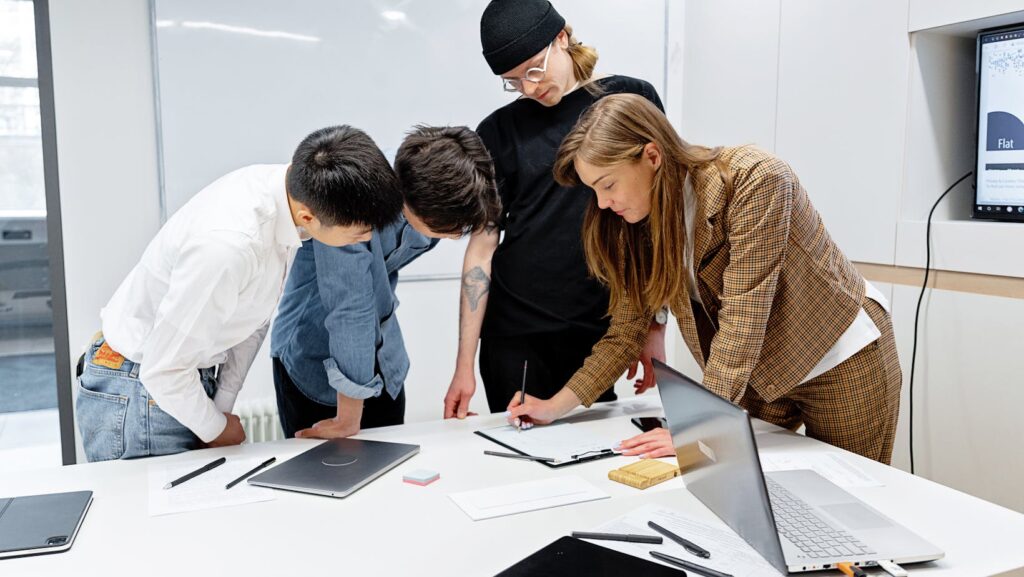So, you’ve aced the first interview and have been invited back for round two. It’s a thrilling yet daunting prospect. You’re one step closer to landing that dream job, but the pressure’s on to make a lasting impression. This article is your guide to navigating the second interview tips with confidence and poise.
Second Interview Tips

A second interview reflects the employer’s escalating interest in a candidate, indicative of his or her initial success in the job application. It’s a chance to solidify a positive impression and tends to delve into more specifics than the first round. In these deeper evaluations, employers often reveal more about the responsibilities and expectations attached to the job role. This provides an excellent opportunity for candidates to confirm their skills align with the company’s needs, enhancing their suitability prospects.
In the competitive corporate landscape, understanding the importance of a second interview, and preparing accordingly paves the way for a successful career trajectory.
Top Second Interview Tips to Follow
For candidates navigating their second interview tips, the following are strategies for making the most out of the opportunity.
Displaying Confidence
Projecting confidence serves as a cornerstone in acing the second interview. It’s an essential characteristic employers seek. Exhibiting this attribute includes maintaining eye contact, adopting assertive body language, and speaking with a clear, steady tone. Self-assurance can also be projected through one’s body language, such as sitting upright and making attentive, engaged Nods while listening. Shaky voice, a downward gaze, or slouched posture might suggest unease, so ensuring conscious control over body language could greatly enhance the impression of confidence,
Providing Detailed Answers

The second interview demarcates a deeper dive into a candidate’s qualifications and ability. To excel, candidates must provide detailed answers that tie their skills and experience to the job role. Rather than providing a blanket statement such as “I’m a capable project manager,” a candidate could specify, “In my previous position, I successfully led three large scale projects, delivering each one under budget and on schedule.”. These details demonstrate expertise, not just in the field but in relation to the specific responsibilities of the role.
Showing Sustained Interest
Demonstrating persistent interest signifies a candidate’s genuine enthusiasm for the position. In the second interview, this can be exhibited by asking thoughtful questions about the company’s future, acknowledging recent successes, or discussing why their skills match company needs. For example, if a company recently launched a new product, a candidate might ask, “How does the new product fit into your future vision for the company?” This shows not only an active interest in the organization but a readiness to contribute towards that future vision.
Mistakes to Avoid in a Second Interview
Employing a lackadaisical attitude marks the first mistake in a second interview. Indeed, the elimination process gets tougher now, so taking the second interview lightly can be costly. It’s crucial to continue demonstrating enthusiasm about the job opportunity and the company.
Showing up unprepared is a cardinal sin in any job interview, second interviews not being an exception. They should delve deeper into previous work experiences, illustrating how they’d tackle problem scenarios. Revisiting insights gained from the first interview can provide a valuable backdrop to base these examples on.

Silence on questions regarding improvements from the first interview marks the third faux pas. Recruiters often expect candidates to have taken first-interview feedback on board. Constructive criticism acts as a springboard to success, if well-integrated.
Lastly, it’s important to not ask inappropriate questions about remunerations or perks too eager. Even though it’s a second-round interview, it’s not yet the negotiation stage. Eager candidates can come across as only interested in the benefits, sabotaging their professional image.
Leaving a Lasting Impression
Navigating a second interview tips can be a daunting task, but with the right preparation, it’s achievable. Aligning personal skills with the company’s needs, understanding the workplace culture, and utilizing first interview feedback are all crucial steps. Answering common second interview questions effectively, maintaining professional attitude, and demonstrating positive body language are also essential. By taking advantage of these second interview tips, one will leave a lasting, personalized impression. With these tips, the second interview shouldn’t be a hurdle, but an opportunity to shine.



